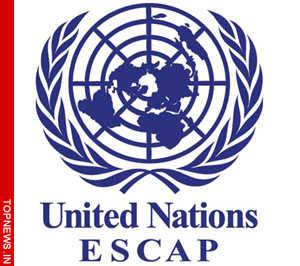Pesticide tributyltin added to trade "watch list"
 Rome - More than 120 countries party to the Rotterdam Convention on hazardous substances have agreed to add the pesticide tributyltin to a global trade "watch list," a United Nations agency said Monday.
Rome - More than 120 countries party to the Rotterdam Convention on hazardous substances have agreed to add the pesticide tributyltin to a global trade "watch list," a United Nations agency said Monday.
Tributyltin (TBT) compounds are pesticides used in antifouling paints for ship hulls and are toxic to fish, molluscs and other aquatic organisms. The International Maritime Organization has moved to ban the use of antifouling paints containing TBT compounds.
However, delegates attending a conference in Rome failed to reach consensus on the inclusion of two other substances - chrysotile asbestos and the pesticide endosulfan - the Rome-based UN Food and Agriculture Organization, said.
During the conference, many governments expressed "serious concern" about the failure to list chrysotile asbestos, FAO said in a statement.
The World Health Organization (WHO) issued a statement reminding participants that chrysotile is a human carcinogen and that at least 90,000 people die every year of asbestos-related diseases such as lung cancer and mesothelioma, a rare form of cancer directly linked to asbestos.
Chrysotile asbestos is the most commonly used form of asbestos, accounting for around 94 per cent of global asbestos production. It is widely used in building materials, such as asbestos cement, pipe and sheet, and in the manufacture of friction products, gaskets and paper.
Endosulfan is a pesticide widely used around the world, particularly in cotton production. It is hazardous to the environment and detrimental to human health, particularly in those countries where safeguards are not adequate, FAO said.
The Rotterdam Convention on the Prior Informed Consent (PIC) Procedure for certain Hazardous Chemicals and Pesticides in International Trade promotes transparency and information sharing about potential risks to human health and the environment.
Its so-called PIC list currently contains 39 hazardous substances, including all other forms of asbestos.
Under the Convention, exports of chemicals and pesticides on the PIC list require the prior informed consent of the importing country.
This gives developing countries in particular the power to decide which potentially hazardous chemicals they want to receive and to exclude those they cannot manage safely.
Exporting countries are responsible for ensuring that no exports leave their territory when an importing country has made the decision not to accept the chemical or pesticide in question. (dpa)